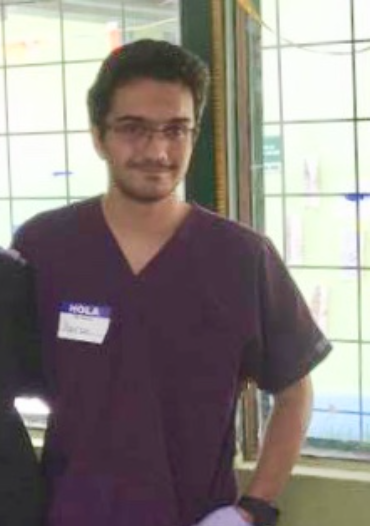Aaron Schaidle, BSN, RN is a new school nurse working in Indiana. He contacted me via Twitter to share his view of why we need a school nurse in every school. Aaron provides a compelling perspective on safe staffing, through his lens as a new school nurse. I appreciate Aaron adding his voice to this important discussion. The health and safety of our students and staff are at risk, why is this even a question in 2019? But, as we know it is...there is no shortage of school nurses willing to serve our nation's 55 million children. There is a lack of foresight in the urgency of addressing the health and safety of our students where school nurses are not given priority in school budgets.

Aaron Schaidle BSN RN
There are just some things nursing school can’t prepare you for.
I remember my first code. I remember my first death. I remember calling doctors at 2am because a patient went VTach on me and I could do nothing but panic. You can train for these occurrences, and every day, millions of nurses scrub up and handle these scenarios with grace. Because that’s what we’ve been taught.
School nursing is an entirely different scenario. You can follow doctor’s orders to dispense medication, apply first aid when someone falls on the playground, and even on the worst days, when there’s an allergy scare or broken bone, you know what to do. And at the end of the day, you feel good about yourself because, hey, you helped a child feel better.
But there are those days when no amount of studying can help you when you think “I have no idea what to do,” because you must address something no textbook can teach you. What are you supposed to do when a student has an accident and their parent can’t pick them up because if they leave work, they’ll lose their job? Or when a student’s A1C is out of control, but all you have is a vial of Humalog? When you read the hundredth story of senseless gun violence, knowing that should that day come, you will be the first responder?
I’m sure all school nurses have experienced the same bewilderment, the knowledge that despite all your expertise, there are sometimes things you just have to handle on your own. If there is one lesson that we all learned, regardless of where we earned our degrees, it is that nurses improvise.
So when students aren’t able to get hygiene products at home, I find companies that distribute them for free. When students can’t get clean clothes, I provide from my personal stock. I make ice packs from sponges, splints from tongue depressors, slings from pillowcases. I talk to caseworkers to advise them on the best way to negotiate with insurance companies, ensuring a student’s diabetes pump will have coverage for components that insurance might try not to cover. My school was generous enough to fund a trip to my state school nursing conference, where I gained invaluable training via the American College of Surgeons’ “Stop the Bleed” initiative, which inspired me to place bleeding control kits in important locations around campus.
Whatever strange, systemically complex but individually critical situations arise in a nurse’s day-to-day, we handle them, playing with whatever cards we’ve been dealt. This is why it is absolutely necessary to have a registered nurse in every school. The combination of advanced training and ability to adapt make nurses a foundational part of an educational organization. Between arranging for free dental visits, to coordinating vaccine clinics, to making sure that one student doesn’t sneak out of class, one school nurse can ensure students save hundreds of educational hours, keeping kids in school instead of a doctor’s office. This is a job that should not be delegated to teachers, God knows we ask too much of them already. Please contact your legislators at the local, state, and federal level, and demand our kids receive the healthcare staff they deserve.

Bio: Aaron received his BSN at Indiana State University in 2017, and trained on an ortho/neuro unit before starting work as a school nurse.
Info about school community: Aaron works in a K-8 grade school in Northwest Indiana, Monday through Friday. He serves a population of roughly 600 students, 89% of whom qualify for free or reduced-cost lunches.

Comments (0)